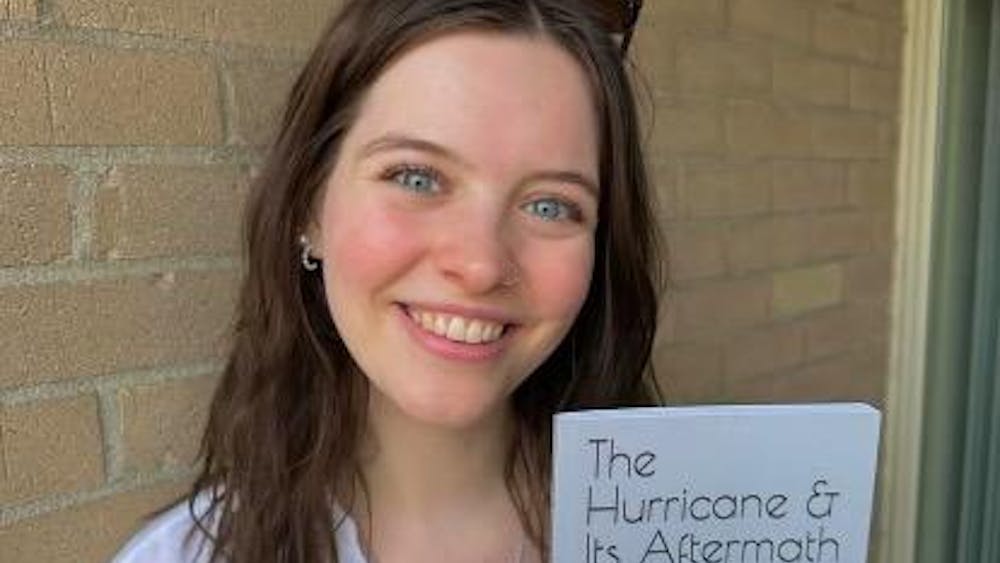Gillian Ream, communications coordinator for the non-profit Michigan Suburbs Alliance organization, and Liz Wozniak, executive director for the non-partisan Michigan League of Conservation Voters, urged Ypsilanti City Council to endorse Proposal 3 Oct. 16.
Proposal 3 is a ballot initiative to amend the state constitution to establish a higher standard for renewable energy.
The proposal would:
•Require electric utility companies to provide at least 25 percent of their annual retail sales of electricity from renewable energy sources such as wind, solar, biomass and hydropower by 2025.
•Limit utility rate increases, as a result of compliance with the renewable energy standard, to 1 percent per year (approximately $1.25 per month).
•Allow annual extensions of the 2025 deadline in order to prevent rate increases over the 1 percent limit.
•Require the legislature to enact additional laws to encourage the
use of Michigan-made equipment and the employment of Michigan residents.
The current Michigan renewable energy standard, signed into law in 2008, requires 10 percent of the energy used in the state to come from renewable sources by 2015, but Wozniak said that isn’t enough.
She also said state government doesn’t plan to revisit renewable energy concerns until 2015, when the current program is fully implemented.
“This isn’t soon enough when utility companies are already making decisions about their long-term investments,” Wozniak said.
According to a February report issued by the Michigan Public Service Commission, the state is on track to meet the current standard, with the percentage of energy coming from renewable sources rising by approximately 1.4 percent per year.
Ream said the “25 by ’25 Renewable Energy Standard” (Proposal 3) would keep the state on track by requiring the proportion to increase by 1.5 percent per year.
She also said more than 60 percent of the electricity used in Michigan comes from coal imported from other states, which costs $1.7 billion a year. Diversifying energy sources within the state will reduce it’s dependence on coal, spurring energy sector job growth and keeping tax dollars here.
Mayor Pro Tem Lois Richardson expressed concern that the state constitution would have to be amended on a consistent basis to keep up with new energy technologies, but Wozniak said that wouldn’t be the case.
She said Proposal 3 doesn’t seek to limit innovations in renewable energy, but to encourage them. The 25 percent standard isn’t a limited goal and higher percentages would be an added benefit.
By implementing clean energy practices, pollution will be reduced, which would provide the state with cleaner air and water, reduce respiratory illnesses and diseases and preserve the Great Lakes.
An August study, conducted by Michigan State University economists, predicts at least 74,000 jobs could be generated and that $10.3 billion in new investments could be brought to the state, but an Oct. 18 report issued by the professional service firm Anderson Economic Group argued the opposite.
According to the Southeast Michigan Regional Energy Office, “The initiative is supported by a broad-based, bipartisan, coalition that includes business, faith, labor, environmental, conservation and health organizations.”
Proposal 3 is supported by many organizations, including the United Auto Workers, Michigan Environmental Council, Sterling Corporation, Michigan Nurses Association, Sierra Club Southeast Michigan Group, Green Tech Action Fund (based in San Francisco) and Michigan Energy Michigan Jobs.
The Michigan Chamber of Commerce, Citizens Protecting Michigan’s Constitution and Gov. Rick Snyder oppose the proposal.
In a press release Snyder said, “Current law sets a goal of generating 10 percent of electricity from renewable sources such as wind, solar, hydro and biomass by 2015. This is a standard that’s already difficult to meet. Proposal 3 would set the bar even higher – and we would be the only state to have such a mandate in our
constitution.”
Eastern Michigan University freshman Trevor Mulready said, “I’m going to vote yes [on Proposal 3]. This will be a great way for our state to create jobs and get people that the recession has affected back on their feet.”
EMU student Kymontae Payne said, “I think this proposal sounds good because of the jobs it will make, the improvement in the environment and also it puts a cap on what DTE can charge.”
Proposal 3 will be on the Nov. 6 ballot.







